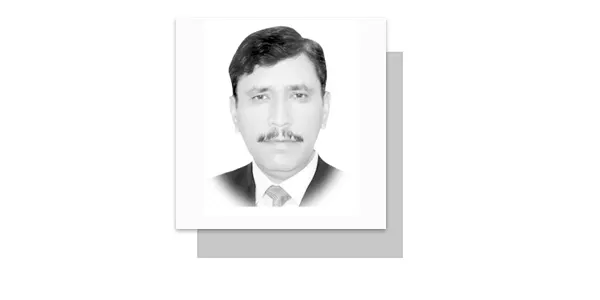IN the aftermath of Nawaz Sharif’s triumphant return from self-imposed exile, the political stage in Pakistan resonates with the commanding influence of the Muslim League-N. Political figures from diverse parties, spanning the nationalist bastions of Balochistan to the formidable People’s Party, find themselves entangled in its political vortex. The lingering query persists: which party has successfully resisted its formidable sway? The paradox arises when considering how a party gains acclaim as popular despite its recent governance, which unfurled an inflationary tempest, shattering the collective hopes and aspirations of the populace. This enigma, perplexing and, to a certain extent, miraculous, underscores the complex dynamics at play in the unfolding political drama.
Amidst the discourse surrounding the Muslim League-N after the return of Mian Nawaz Sharif, the spectacle of unfurling success banners nationwide just before the elections casts contemporary parties into the tableau of compulsion and helplessness. Rana Sanaullah, the central figure, predicts that the Muslim League-N, by securing the majority of provincial and national seats in Punjab, will ascend to power not only within the province but also at the federal helm. The narrative attributed to the PML-N ascribes the party’s popularity to the charismatic aura of Mian Nawaz Sharif. According to this intellectual consortium, had the ‘Establishment’ not forcibly ousted Mian Sahib, the nation would have been spared the multitude of crises it faces today. After the Establishment has comprehended this, Mian Sahib has once again tendered his services to the nation, garnering recognition nationwide. This narrative unfolded during Mian Sahib’s meeting with US Ambassador Donald Blome in Raiwind, where the need for fair and free elections in February was earnestly discussed.
Beyond the purview of the PML-N, parties such as the People’s Party and the Istehkam-e-Pakistan Party have also engaged in discussions with Donald Blome. The former, once a constituent of the PML-N government, and the latter, comprising the renegade leadership of Tehreek-e-Insaf, paint an interesting political tableau. Notably absent from Donald Blome’s diplomatic endeavours is the leadership of Tehreek-e-Insaf, a party that accuses the United States of orchestrating a conspiracy to topple the government, framing Blome’s meetings with political leadership as a continuation of this purported plot.
Amidst the disheartening state of affairs, attributing responsibility solely to the PML-N or deeming Donald Blome’s efforts as a failure oversimplifies the intricate web of political dynamics. Equally confounding is the People’s Party’s departure from its prior grievances, now expressing confidence in the Election Commission’s competence to fulfill its duties effectively. To unravel this enigma, inquiries must be directed at the Election Commission, probing whether it has diligently ensured that elections transpire in an environment marked by transparency. Alternatively, contemplation arises regarding the alignment of the current political milieu with the constitutional ethos governing general elections.
During his meeting with the head of the Election Commission, Donald Blome extended support for transparent elections, accentuating that the PML-N’s unprecedented popularity is not the sole miraculous occurrence of this era. Rather, it is complemented by Blome’s extraordinary dedication to transparent electoral processes and the consequent acceptance of the public. This convergence of political intrigue and diplomatic endeavour paints a tableau where the fate of democracy hangs in the balance, awaiting the clarity that fair and transparent elections could bring to the forefront.
Interestingly enough, if the electoral environment improves through even Donald Blome’s efforts, it would be an environment where all political parties have a level playing field. This implies that Tehreek-e-Insaf’s leadership would have to be granted concessions akin to those afforded to Nawaz Sharif, allowing not only his release on bail but also permitting his participation in election activities.
In the realm of electoral politics, there is yet another player: the International Monetary Fund (IMF). Its delegation had met with the chairman of Tehreek-e-Insaf to discuss the conditions of a loan, conceived as a temporary measure to resuscitate the national economy, yielding positive outcomes. Now, with this program in motion, it becomes imperative for the post-election governance to be entrusted to a political party that has navigated the intricacies of IMF dealings more effectively than other major parties. It cannot be ruled out that Imran Khan sought certain guarantees during his meeting with the IMF delegation. After all, Senator Raza Rabbani was not content with this issue, deeming it a compromise on political autonomy.
The paradox of transparent polls, as witnessed in the interplay of IMF dynamics and electoral manoeuvring, adds layers of complexity to the unfolding narrative. Its implications reverberate beyond national borders, resonating with the interconnected interests of global players. In this intricate ballet, the IMF’s overture weaves into the symphony of democracy, influencing not only the domestic political landscape but also resonating with the strategic chords of international relations. Hence, one’s anticipation rests on the hope that Blome’s endeavours towards transparent elections in Pakistan will come to fruition. If this unfolds as anticipated, the electorate will not only have a considerable opportunity to select their leaders, but it will also foster the cultivation of American strategic interests, intimately linked to the global stability of democracy.
—The writer is politico-strategic analyst based in Islamabad.
Email: [email protected]views expressed are writer’s own.
views expressed are writer’s own.









